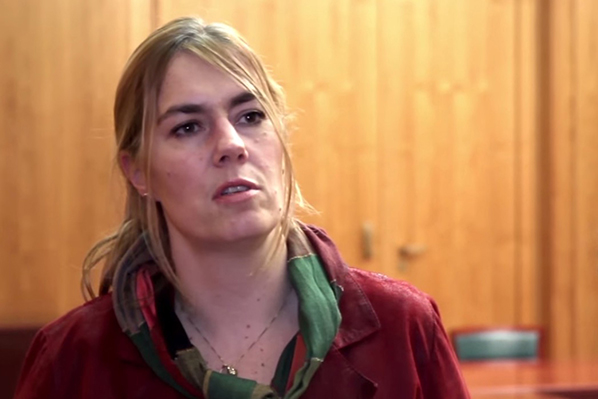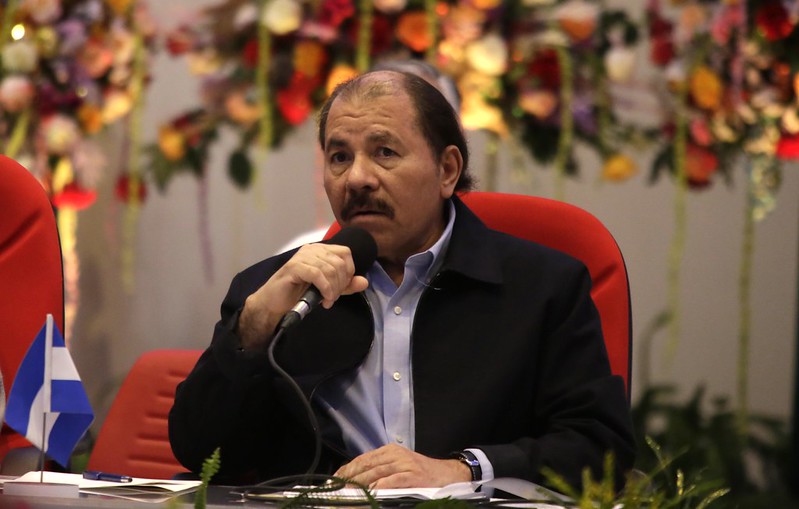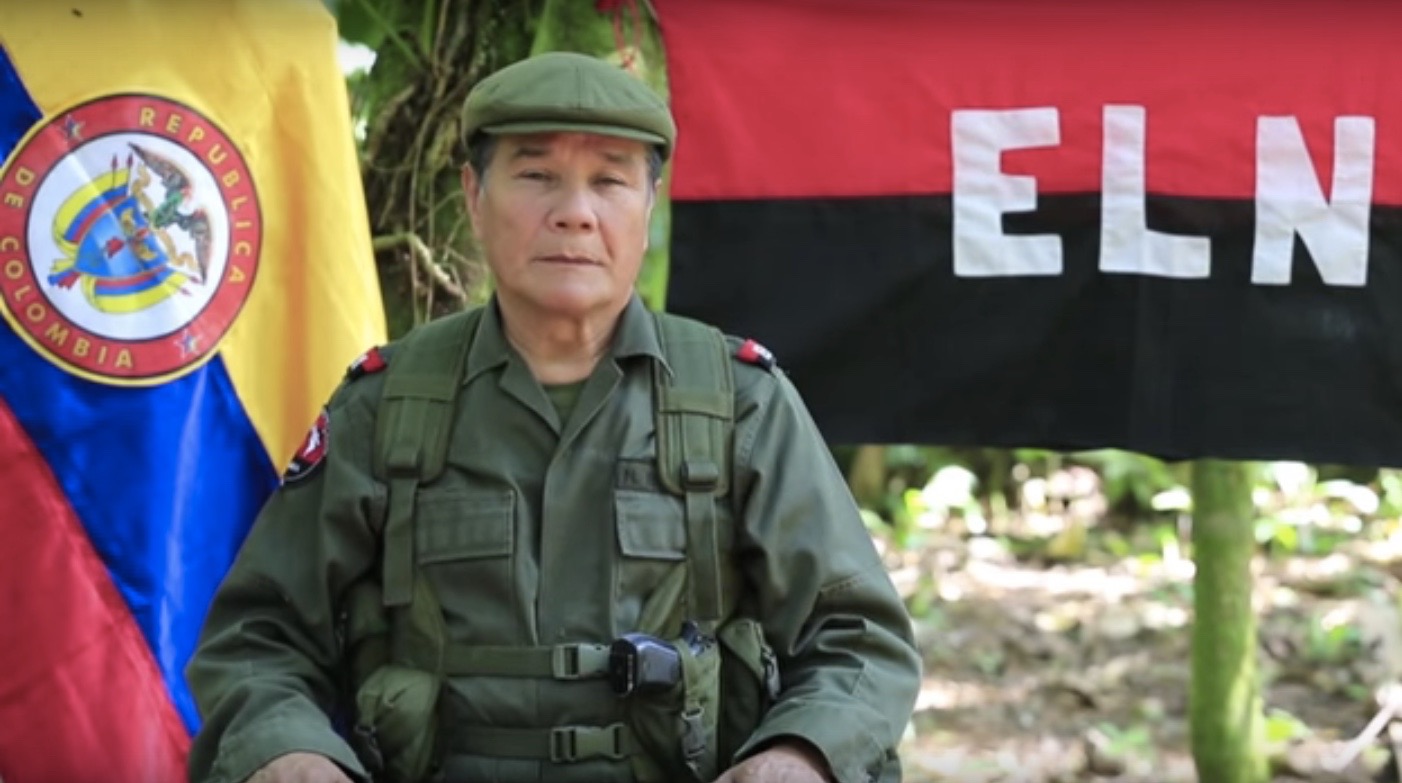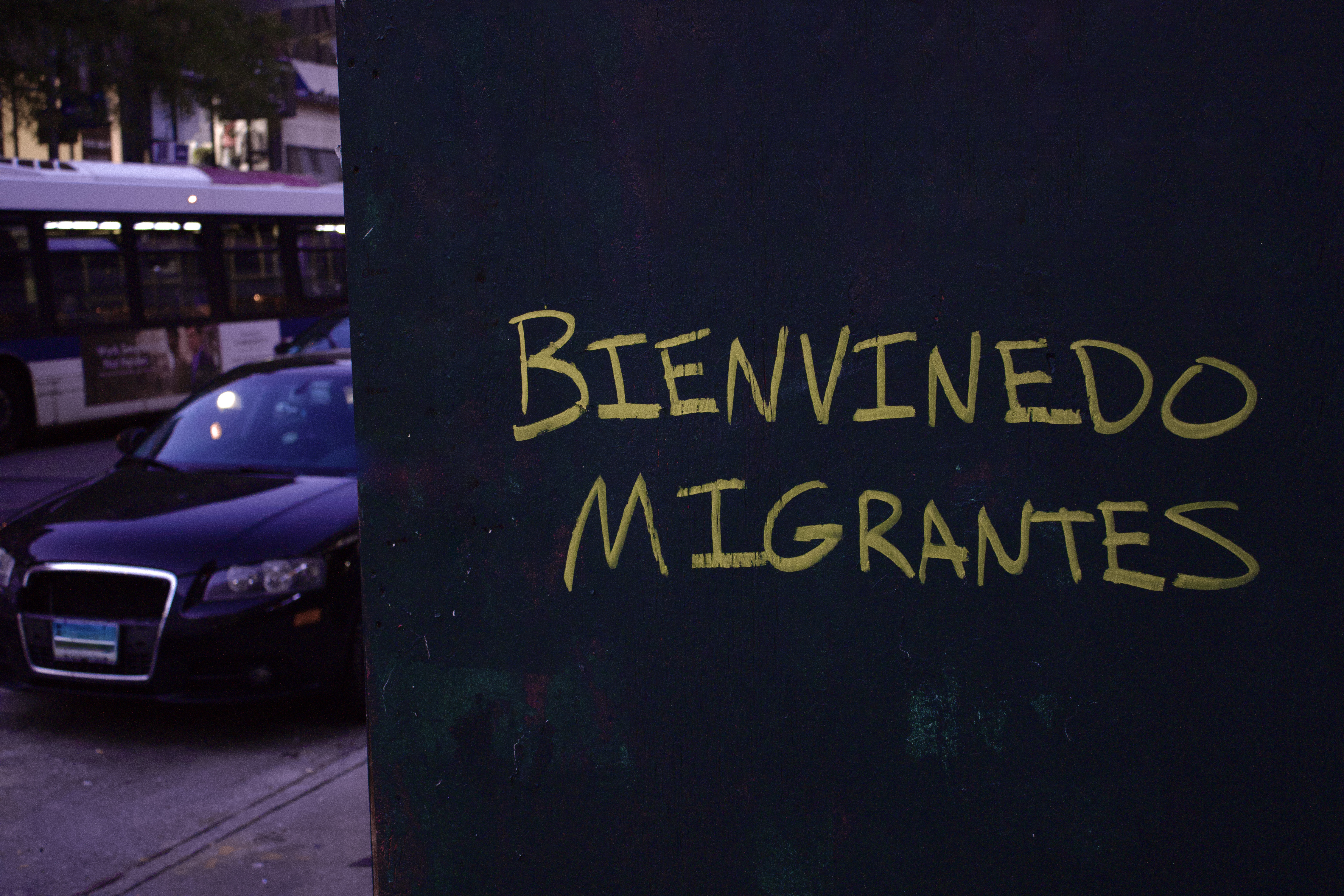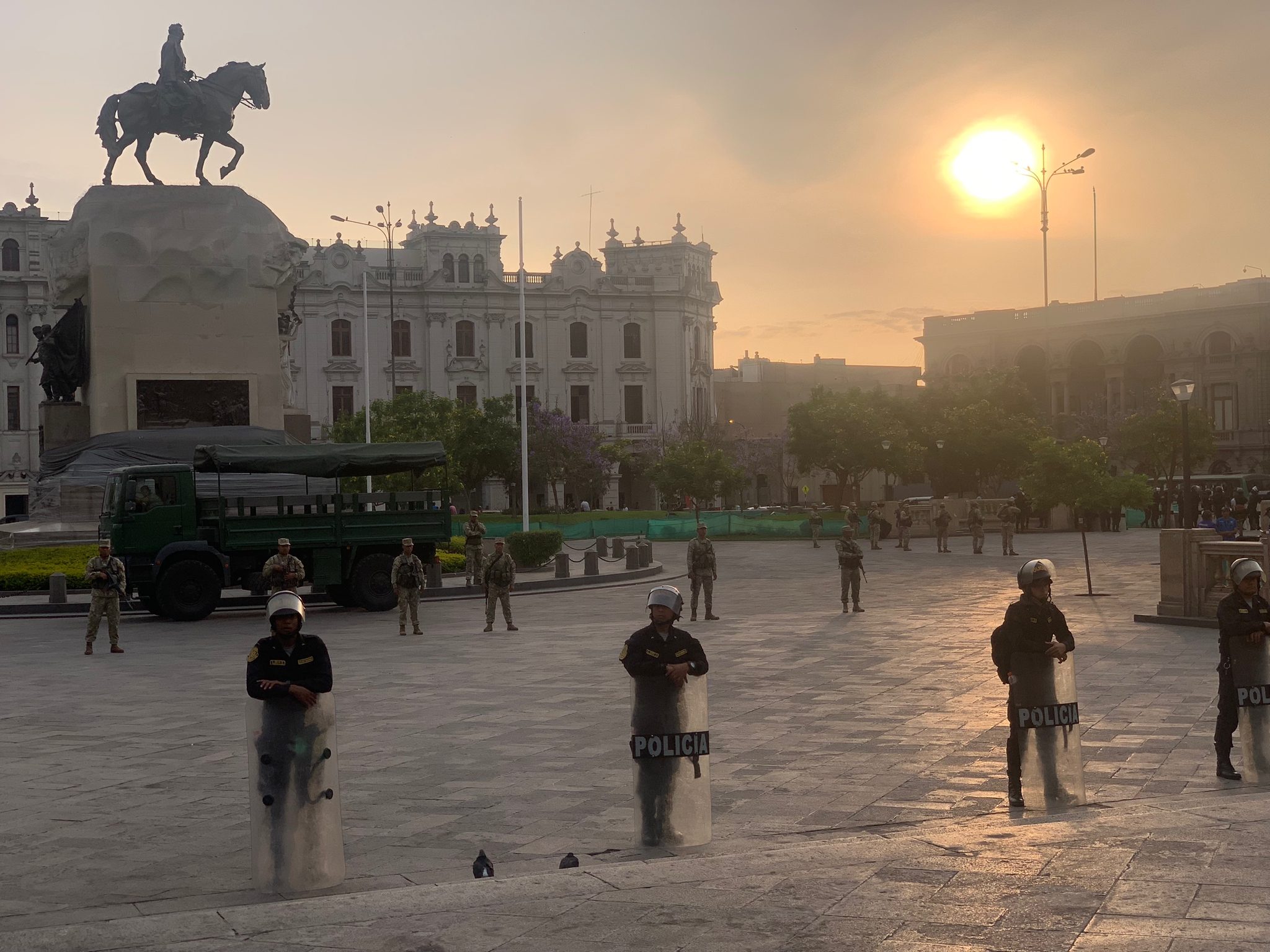
Andes, Dispatches, Features, Peru
As truce ends, Peruvians brace themselves for what lies ahead
January 3, 2023 By Jacob Kessler
LIMA — Peru has been rocked by nationwide protests since Dec. 7, when former President Pedro Castillo was impeached by Congress.
Protestors have called for a closure of Congress and the resignation of current President Dina Boluarte. They have blocked roads and occupied airports, bringing major cities and tourist sites to a standstill.
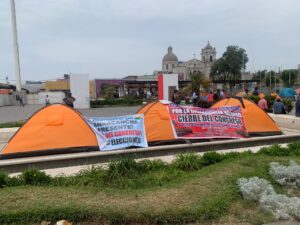
Protest camps in Plaza Manco Capac in Lima. (Photo: Jacob Kessler)
Meanwhile the police and military have often reacted with lethal force against protesters and bystanders. At least 22 people have died as a result.
Over the last week, however, violence and demonstrations have calmed down. Most protestors chose to temporarily pause their political action in exchange for a quiet holiday with family. Some in Lima have returned to their towns on the outskirts of the city; while others have simply taken a break from marching on the streets.
Demonstrations have significantly decreased thanks to a truce — tregua, in Spanish — made between protest leaders, social organizations, and in some cases authorities.
Truces were not made collectively on a national basis but rather were carried out in individual towns and cities.
In Cusco, the center of Peruvian tourism, authorities requested a truce from the social organizations and unions who were key in organizing the protests there. The leadership of Cusco declared a suspension of protests that began on Dec. 21, one of the reasons given being to help with economic recovery.
Furthermore, in another one of the protest hubs in southern Peru, Juliaca, a truce was declared from Dec. 19 to Jan. 4. Not everyone in Juliaca agreed with the truce. Videos posted to Twitter during the truce period appear to show some citizens in Juliaca attempting to organize a small march.
Similarly, protesters in other cities around Peru have also continued demonstrating despite the various truces. In protest hotspots such as Andahuaylas and Arequipa, some demonstrating did persist. Furthermore, organizations in Cusco disagreed with the truce and released statements opposing it.
The holiday respite that Peruvians have experienced this past week will change today and tomorrow as protests and marches recommence.
Protesters who have been camping out at the Plaza Manco Capac in Lima told LAND that they plan on continuing their marches on Jan. 4. The future of these protesters is uncertain as yesterday, police entered the plaza to detain some of those living there.
In the south of Peru, protesters also plan on resuming their demonstrations. Social organizations and unions in Cusco, Puno, Arequipa, Tacna, Apurimac, Moquegua, Madre de Dios and Ayacucho released a statement calling for the resumption of the “indefinite strike” beginning tomorrow.
Boluarte’s announcement of earlier elections for April 2024 has done nothing to quell protests.
Further inflaming the situation, the national police released a video on their official Twitter page announcing their participation in the “March Por La Paz.” This so-called peace march is pro-police and anti-Castillo. Widespread condemnation of police involvement in the march led to the video eventually being deleted.
However, the damage was already done — anti-establishment protesters now have more fodder to bolster their view of unequal treatment from federal police and military.
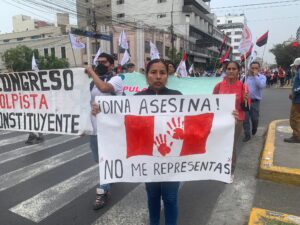
Protestor in an anti-Congress march holding a sign that says, “Dina, assassin! You do not represent me.” (Photo: Jacob Kessler)
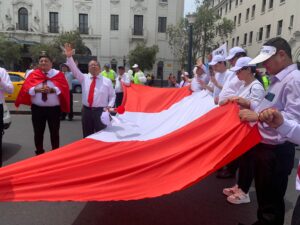
Protestors at the March for La Paz. (Photo: Jacob Kessler)
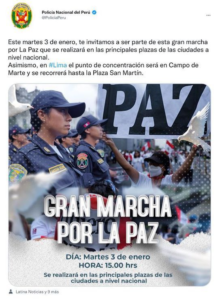
The “March Por La Paz” promoted by Peruvian police on Twitter. (Image: Twitter)
Regarding the video, left-wing anthropologist and former Congresswoman from Cusco Veronika Mendoza said, “Not only is it unconstitutional, but it is extremely dangerous for the PNP (national police) to become politicized….We want peace, yes, but not with bullets and repression, we want peace with justice and equality.”
Meanwhile, President Boluarte has called for an extension of the truce past the holidays. However, given Boluarte’s extreme unpopularity and the lack of any concrete solution to the political crisis, protests are likely to escalate in coming weeks.
About Jacob Kessler
Jacob Kessler is a freelance journalist based in Peru. He covers international LGBT news, Chinese influence in South America, and other human rights issues. He is a graduate of Hunter College and speaks Spanish, Portuguese, Chinese, and English.
